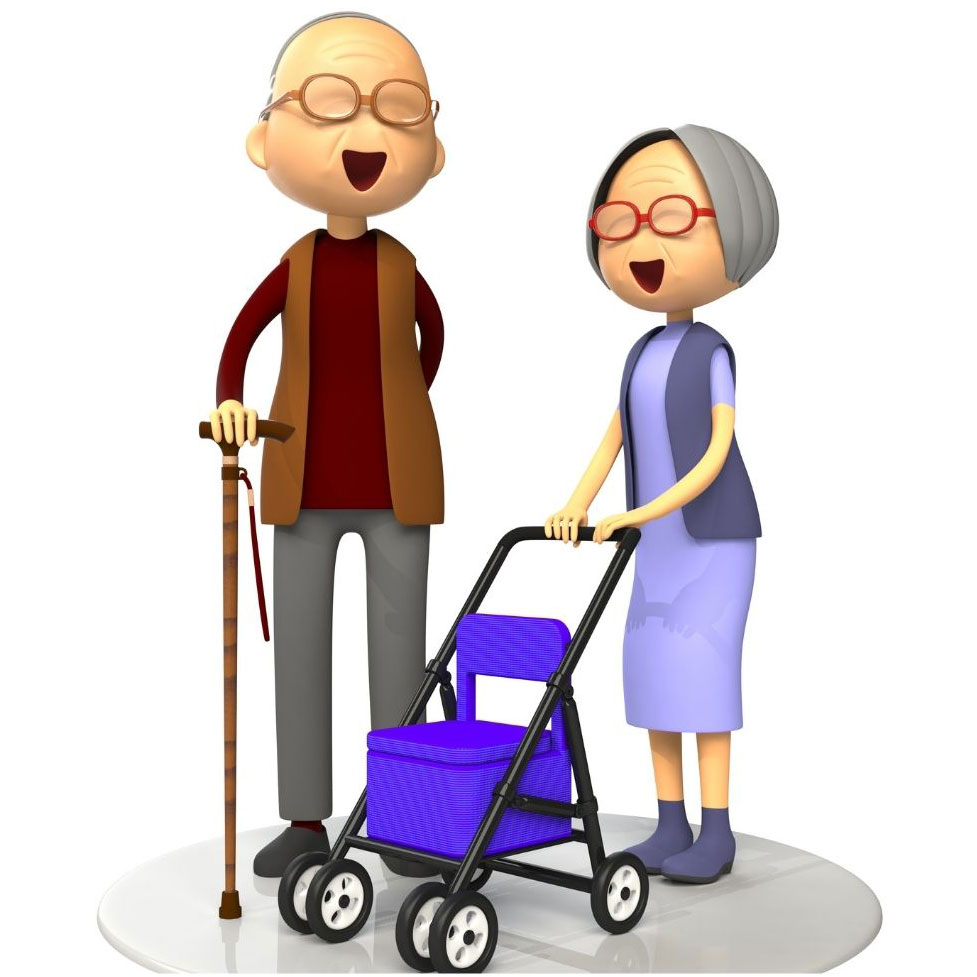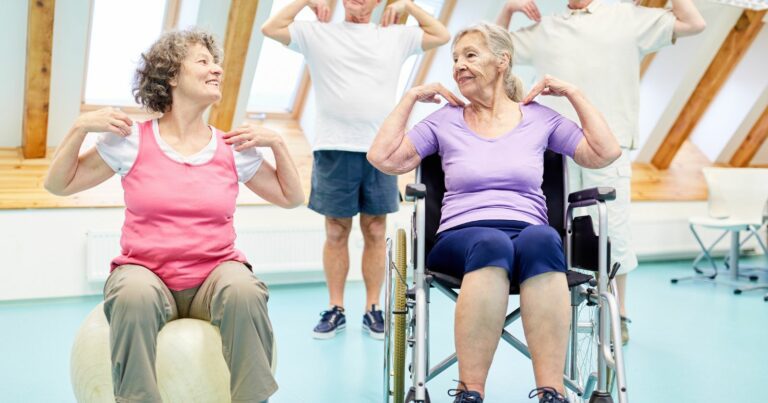Hi, I’m Ed, and I understand firsthand the complexities and emotions involved when an elderly loved one becomes persistently negative. If you’re asking yourself, “Why is my elderly mother so negative?” you’re not alone. Why Is My Elderly Mother So Negative
At Elderly Independence, I’ve explored many facets of aging and relationships, and this issue is one that resonates with many. Whether it’s an unexpected change in personality or a gradual increase in negativity, understanding what’s happening with your elderly mother requires empathy, patience, and professional insight.
Join me as we explore the underlying causes, emotions, and effective strategies to handle this sensitive issue. Together, we’ll find ways to support, connect, and navigate through this challenging phase.
Why Is My Elderly Mother So Negative: Understanding the Negativity in Elderly Mothers

As our parents age, it is not uncommon for them to become more negative in their outlook on life. This can be a challenging and frustrating situation for both the elderly mother and her family members. However, it is important to approach this issue with empathy and understanding, as there are often underlying reasons for this negativity.
One possible reason for an elderly mother’s negativity is the physical and emotional changes that come with aging. As individuals age, they may experience chronic pain, health issues, and a decline in physical abilities. These changes can lead to feelings of frustration, sadness, and a sense of loss. It is important to recognize that these physical and emotional challenges can greatly impact an elderly mother’s overall outlook on life.
Another factor that may contribute to an elderly mother’s negativity is social isolation. As individuals age, they may experience the loss of friends and loved ones, which can lead to feelings of loneliness and isolation. This lack of social interaction can contribute to negative thoughts and emotions. It is important to encourage and facilitate social connections for elderly mothers, whether through community programs, senior centers, or regular visits from family and friends.
Additionally, cognitive decline and mental health issues can also play a role in an elderly mother’s negativity. Conditions such as dementia or depression can greatly impact a person’s mood and outlook on life. It is important to recognize the signs of these conditions and seek appropriate medical and mental health support for the elderly mother.
Lastly, it is important to consider the impact of past experiences and life events on an elderly mother’s negativity. Traumatic experiences, loss, or unresolved conflicts can all contribute to negative thoughts and emotions. It may be helpful to explore these past experiences with the elderly mother in a supportive and non-judgmental manner, and consider seeking therapy or counseling to help her process and heal from these experiences.
In conclusion, understanding the reasons behind an elderly mother’s negativity is crucial in order to provide the appropriate support and help her overcome it. By recognizing the physical, emotional, social, and psychological factors that contribute to her negativity, we can work towards creating a more positive and supportive environment for her.
The Impact of Negativity on Elderly Mothers’ Mental Health
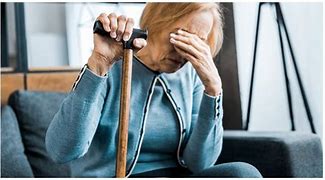
Negativity can have a significant impact on the mental health of elderly mothers. It can lead to feelings of sadness, hopelessness, and isolation, which can contribute to the development or worsening of conditions such as depression and anxiety.
When elderly mothers constantly focus on negative thoughts and emotions, it can affect their overall well-being and quality of life. They may withdraw from social activities, lose interest in hobbies or activities they once enjoyed, and have difficulty maintaining relationships with family and friends. Negativity can also lead to physical health problems, as stress and negative emotions can weaken the immune system and increase the risk of developing chronic conditions.
Furthermore, negativity can create a cycle of negative thinking and behavior. When elderly mothers constantly dwell on negative thoughts, it can reinforce those thoughts and make it difficult for them to see the positive aspects of their lives. This can lead to a pessimistic outlook and a lack of motivation to engage in activities that could bring them joy or fulfillment.
It is important to address and manage negativity in elderly mothers to prevent further deterioration of their mental health. By understanding the impact of negativity, family members and caregivers can provide the necessary support and interventions to help their elderly mothers overcome these negative emotions.
Some strategies for managing negativity in elderly mothers include encouraging positive thinking, promoting emotional well-being, and creating a supportive environment. This can involve engaging in activities that bring joy and fulfillment, fostering social connections, and providing emotional support and reassurance. Seeking professional help, such as therapy or counseling, can also be beneficial in addressing and managing negativity in elderly mothers.
Overall, the impact of negativity on elderly mothers’ mental health should not be underestimated. By recognizing the signs and understanding the causes of negativity, family members and caregivers can take proactive steps to support their elderly mothers and help them find joy and positivity in their lives.
Common Causes of Negativity in Elderly Mothers

There can be various reasons why elderly mothers may exhibit negativity. It is important to understand these causes in order to provide appropriate support and help them overcome their negative mindset. Here are some common causes of negativity in elderly mothers:
1. Health Issues:
Physical ailments and chronic pain can significantly impact an elderly mother’s mood and overall well-being. Conditions such as arthritis, diabetes, or heart disease can cause discomfort and limit their ability to engage in activities they once enjoyed. This can lead to frustration, sadness, and a negative outlook on life.
2. Loss and Grief:
As people age, they often experience the loss of loved ones, including spouses, friends, and family members. Dealing with multiple losses can be emotionally challenging and may contribute to feelings of loneliness, sadness, and negativity.
3. Social Isolation:
Elderly mothers may face social isolation due to various factors such as retirement, mobility issues, or the loss of friends and family members. Lack of social interaction and meaningful connections can lead to feelings of loneliness, which can contribute to a negative mindset.
4. Cognitive Decline:
Cognitive decline, such as dementia or Alzheimer’s disease, can affect an elderly mother’s ability to think clearly and remember things. This can be frustrating and lead to feelings of confusion, anger, and negativity.
5. Financial Concerns:
Financial worries can be a significant source of stress for elderly mothers, especially if they are living on a fixed income or facing financial difficulties. Concerns about money can lead to anxiety, fear, and a negative outlook on life.
6. Changes in Independence:
As people age, they may experience a loss of independence due to physical limitations or the need for assistance with daily activities. This loss of autonomy can be challenging to accept and may contribute to feelings of frustration, anger, and negativity.
It is important to approach these causes with empathy and understanding. By addressing the underlying issues and providing appropriate support, it is possible to help elderly mothers overcome their negativity and improve their overall well-being.
Recognizing the Signs of Negativity in Elderly Mothers
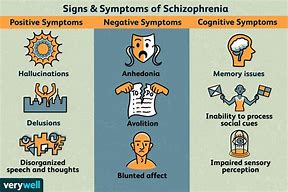
Recognizing the signs of negativity in elderly mothers is crucial in understanding their behavior and finding ways to support them. Negativity can manifest in various ways, and being able to identify these signs can help you address the underlying issues effectively.
One common sign of negativity in elderly mothers is constant complaining or a pessimistic outlook on life. They may frequently express dissatisfaction with their circumstances, focus on the negative aspects of situations, and have a general sense of hopelessness. This negativity can be draining for both the elderly mother and those around her.
Another sign to look out for is social withdrawal or isolation. Negativity can lead to a loss of interest in social activities and a desire to be alone. Your elderly mother may avoid social interactions, decline invitations, and prefer to stay at home. This isolation can further exacerbate her negative mindset and contribute to feelings of loneliness and sadness.
Physical symptoms such as fatigue, lack of appetite, and difficulty sleeping can also indicate negativity in elderly mothers. Negative thoughts and emotions can take a toll on their physical well-being, leading to a decline in overall health. It is important to address these physical symptoms and seek medical attention if necessary.
Additionally, negative self-talk and self-deprecating comments are common signs of negativity in elderly mothers. They may have a low self-esteem and constantly criticize themselves. This negative self-perception can impact their mental health and hinder their ability to find joy and fulfillment in life.
By recognizing these signs of negativity, you can begin to understand the underlying causes and develop strategies to support your elderly mother. It is important to approach the situation with empathy and patience, as negativity in elderly mothers may stem from a variety of factors such as health issues, loss of independence, or feelings of loneliness. Creating a supportive environment, encouraging positive thinking, and seeking professional help if needed are all important steps in helping your elderly mother overcome negativity and improve her overall well-being.
Strategies for Supporting a Negative Elderly Mother

Dealing with a negative elderly mother can be challenging, but there are strategies you can employ to support her and help her overcome her negativity. Here are some effective strategies to consider:
1. Show empathy and understanding:
It is important to approach your elderly mother with empathy and understanding. Try to put yourself in her shoes and understand the reasons behind her negativity. This can help you respond to her in a more compassionate and patient manner.
2. Listen actively:
Take the time to actively listen to your mother’s concerns and frustrations. Sometimes, all she needs is someone to vent to and validate her feelings. By actively listening, you can provide her with the emotional support she needs.
3. Encourage positive thinking:
Help your mother focus on the positive aspects of her life. Encourage her to engage in activities that bring her joy and help her find meaning and purpose. This could be anything from pursuing a hobby to spending time with loved ones.
4. Offer reassurance and validation:
Reassure your mother that her feelings are valid and that you are there to support her. Let her know that she is not alone and that you will be there for her every step of the way.
5. Seek professional help if needed:
If your mother’s negativity is severely impacting her mental health and well-being, it may be necessary to seek professional help. A therapist or counselor can provide her with the necessary tools and support to overcome her negativity.
6. Create a supportive environment:
Ensure that your mother is surrounded by a positive and supportive environment. This could involve limiting exposure to negative influences, such as news or toxic relationships, and instead fostering a positive and uplifting atmosphere.
7. Celebrate small victories:
Help your mother find joy in the little things. Celebrate her accomplishments, no matter how small they may seem. This can help boost her self-esteem and overall well-being.
Remember, supporting a negative elderly mother requires patience, understanding, and compassion. By employing these strategies, you can help her overcome her negativity and improve her overall quality of life.
Encouraging Positive Thinking in Elderly Mothers
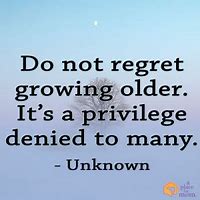
As we age, it is common for negative thoughts and attitudes to become more prevalent. This can be due to a variety of factors, such as physical health issues, loss of loved ones, or feelings of loneliness and isolation. It is important to understand that negativity in elderly mothers is not a personal choice, but rather a result of their circumstances and experiences.
Encouraging positive thinking in elderly mothers can have a significant impact on their overall well-being and quality of life. Here are some strategies to help promote positivity:
1. Practice gratitude:
Encourage your elderly mother to focus on the things she is grateful for. This can be as simple as expressing appreciation for a beautiful sunset or a kind gesture from a friend. By shifting her focus to the positive aspects of her life, she can begin to cultivate a more optimistic mindset.
2. Engage in meaningful activities:
Help your elderly mother find activities that bring her joy and a sense of purpose. This could be anything from gardening to volunteering or pursuing a hobby. Engaging in activities that she enjoys can help distract her from negative thoughts and provide a sense of fulfillment.
3. Foster social connections:
Loneliness and isolation can contribute to negativity in elderly mothers. Encourage your mother to maintain and build social connections by joining clubs, attending community events, or participating in group activities. Social interaction can provide a sense of belonging and support, which can help combat negativity.
4. Provide emotional support:
Be a listening ear and offer emotional support to your elderly mother. Sometimes, all she needs is someone to talk to and validate her feelings. Show empathy and understanding, and let her know that you are there for her.
5. Encourage self-care:
Help your elderly mother prioritize self-care activities, such as exercise, proper nutrition, and getting enough rest. Taking care of her physical health can have a positive impact on her mental well-being.
Remember, it is important to be patient and understanding when encouraging positive thinking in elderly mothers. It may take time for them to adopt a more positive mindset, but with your support and guidance, they can find joy and contentment in their lives once again.
Promoting Emotional Well-being in Elderly Mothers

Promoting emotional well-being in elderly mothers is crucial for their overall happiness and quality of life. Negativity can often stem from feelings of loneliness, loss, or a decline in physical health. By addressing these underlying issues and providing support, you can help your elderly mother find emotional balance and positivity.
One important aspect of promoting emotional well-being is ensuring that your elderly mother feels connected and supported. Loneliness can contribute to negative thoughts and feelings, so it’s essential to encourage social interactions and maintain a strong support system. This can be achieved by organizing regular visits or outings with friends and family members, or even connecting her with local community groups or senior centers where she can engage in activities and meet new people.
Additionally, it’s important to validate your elderly mother’s feelings and provide a safe space for her to express herself. Sometimes, simply listening and empathizing can make a significant difference in her emotional well-being. Encourage open communication and let her know that her thoughts and emotions are valid and respected.
Engaging in activities that bring joy and purpose can also help combat negativity. Encourage your elderly mother to pursue hobbies or interests that she enjoys, whether it’s painting, gardening, or joining a book club. Engaging in meaningful activities can provide a sense of accomplishment and fulfillment, boosting her overall mood and well-being.
Physical health plays a significant role in emotional well-being, so it’s important to prioritize your elderly mother’s health. Encourage regular exercise, a balanced diet, and regular medical check-ups. Physical well-being can positively impact mental and emotional health, reducing the likelihood of negativity.
Lastly, consider seeking professional help if your elderly mother’s negativity persists or worsens. A therapist or counselor specializing in geriatric mental health can provide valuable support and guidance. They can help your mother explore her emotions, develop coping strategies, and provide additional resources for her well-being.
Promoting emotional well-being in elderly mothers requires patience, understanding, and a commitment to their overall happiness. By addressing the underlying causes of negativity and providing support, you can help your elderly mother find joy and positivity in her life once again.
Seeking Professional Help for Negative Elderly Mothers

When dealing with a negative elderly mother, it is important to recognize that sometimes professional help may be necessary. While family members can provide support and encouragement, there are instances where the expertise of trained professionals is needed to address underlying issues and provide effective treatment.
1. Mental Health Professionals:
Consulting with a mental health professional, such as a psychologist or psychiatrist, can be beneficial in understanding and addressing the root causes of your elderly mother’s negativity. These professionals can conduct assessments, provide therapy, and prescribe medication if necessary. They can help your mother develop coping strategies and provide guidance on managing her negative thoughts and emotions.
2. Geriatric Specialists:
Geriatric specialists are medical doctors who specialize in the care of older adults. They have a deep understanding of the physical, emotional, and cognitive changes that occur with aging. Consulting with a geriatric specialist can help identify any underlying medical conditions or medication side effects that may be contributing to your mother’s negativity. They can also provide guidance on managing chronic illnesses and improving overall well-being.
3. Support Groups:
Support groups can be a valuable resource for both the elderly mother and her family members. These groups provide a safe space for individuals facing similar challenges to share their experiences, offer support, and learn from one another. Support groups can be found in community centers, senior centers, or online platforms.
4. Social Workers:
Social workers specialize in providing support and resources to individuals and families in need. They can help assess your mother’s situation, connect her with community resources, and provide counseling or therapy services. Social workers can also assist with navigating the healthcare system and advocating for your mother’s needs.
Remember, seeking professional help does not mean that you have failed as a caregiver or that your mother is “broken.” It simply means that you are taking proactive steps to ensure her well-being and provide her with the best possible care. Professional help can complement the support and love you provide as a family member, and together, you can work towards helping your elderly mother overcome her negativity and find joy in life once again.
Creating a Supportive Environment for Elderly Mothers
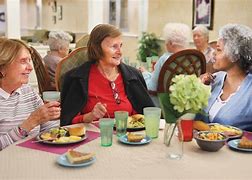
Creating a supportive environment for elderly mothers is crucial in helping them overcome negativity and improve their overall well-being. Here are some strategies to consider:
1. Show empathy and understanding:
It is important to listen to your elderly mother’s concerns and validate her feelings. Let her know that you understand and empathize with her struggles. This can help her feel heard and supported.
2. Foster positive relationships:
Encourage your elderly mother to maintain social connections with friends, family, and community members. Loneliness and isolation can contribute to negativity, so facilitating opportunities for social interaction can make a significant difference in her mood.
3. Provide opportunities for engagement:
Engaging in activities that your elderly mother enjoys can help distract her from negative thoughts and provide a sense of purpose. Encourage her to pursue hobbies, join clubs or groups, or participate in volunteer work. These activities can boost her self-esteem and overall happiness.
4. Create a safe and comfortable living environment:
Ensure that your elderly mother’s living space is clean, organized, and comfortable. A clutter-free environment can promote a sense of calm and reduce stress. Additionally, make sure her home is safe and accessible, minimizing the risk of accidents or falls.
5. Encourage a healthy lifestyle:
Physical health is closely linked to mental well-being. Encourage your elderly mother to engage in regular exercise, eat a balanced diet, and get enough sleep. These lifestyle factors can significantly impact her mood and overall outlook on life.
6. Seek professional help if needed:
If your elderly mother’s negativity persists or worsens despite your efforts, it may be beneficial to seek professional help. A mental health professional can provide specialized support and guidance tailored to her specific needs.
Remember, creating a supportive environment for your elderly mother requires patience, understanding, and consistent effort. It may take time for her to adjust and embrace positive changes, but with your support, she can find joy and contentment in her later years.
Celebrating Small Victories: Helping Elderly Mothers Find Joy in Life

As we age, it is common for negative thoughts and emotions to become more prevalent. This can be especially true for elderly mothers who may be facing various challenges such as health issues, loss of independence, or the passing of loved ones. However, it is important to remember that there are ways to help them find joy and positivity in their lives.
One effective strategy is to celebrate small victories with your elderly mother. This involves acknowledging and appreciating the little accomplishments and moments of happiness that she experiences. It could be something as simple as completing a crossword puzzle, cooking a favorite meal, or spending quality time with family and friends. By recognizing and celebrating these small victories, you can help shift her focus toward the positive aspects of her life.
Another way to promote joy in your elderly mother’s life is by encouraging her to engage in activities that bring her happiness and fulfillment. This could include hobbies, volunteering, or participating in social events. By finding activities that she enjoys and feels passionate about, you can help her maintain a sense of purpose and satisfaction.
Additionally, creating a supportive environment is crucial in helping your elderly mother find joy in life. This involves providing emotional support, listening to her concerns, and validating her feelings. It is important to be patient and understanding, as negativity can often stem from feelings of loneliness, frustration, or fear. By offering a listening ear and a shoulder to lean on, you can help alleviate some of her negative emotions and create a more positive atmosphere.
Lastly, it may be beneficial to seek professional help for your elderly mother if her negativity persists or worsens. A mental health professional can provide guidance and support tailored to her specific needs. They can help her develop coping strategies, address any underlying issues, and provide tools for managing negative thoughts and emotions.
In conclusion, helping your elderly mother find joy and positivity in life is possible. By celebrating small victories, encouraging engagement in enjoyable activities, creating a supportive environment, and seeking professional help when needed, you can make a significant difference in her overall well-being. Remember, it is never too late for your elderly mother to experience happiness and fulfillment.
Frequently Asked Questions
How do you deal with an aging parent who is negative?
Understand Their Perspective: Aging can bring many challenges, such as physical discomfort or feelings of loss of independence, which may manifest as negativity.
Set Boundaries: Clearly communicate what behavior is acceptable and what isn’t. Be firm but compassionate.
Seek Professional Help if Needed: Therapists who specialize in geriatric care can help.
Practice Patience and Empathy: Try to understand where they’re coming from, even if it’s difficult to deal with.
How do you deal with a negative mother?
Communicate Openly: If negative behavior is becoming a pattern, try talking about it openly and honestly.
Avoid Trigger Topics: If you know certain topics bring out negativity, avoid them if possible.
Spend Quality Time Together: Engage in activities you both enjoy.
Consider Professional Help: Sometimes professional mediation or therapy may be needed to resolve deep-seated issues.
Why are some seniors so negative?
Physical and Mental Health: Chronic pain and cognitive decline can lead to frustration or negativity.
Loss of Independence: Feeling dependent on others may lead to resentment.
Social Isolation: Lack of social interaction can lead to feelings of loneliness and negativity.
Fear and Anxiety: Concerns about health, finances, and the future may manifest as negativity.
How do you deal with a nasty elderly mother?
Identify the Root Cause: If possible, try to identify if the “nastiness” is a result of an underlying health issue.
Create a Support System: Lean on other family members or support groups for help.
Set Clear Boundaries: Just like with negativity, make sure to set clear and firm boundaries about what is and isn’t acceptable behavior.
Consider Respite Care: If care responsibilities are overwhelming, look into professional respite care to give yourself a break.
Other Places For You To Explore
Explore
Conclusion
Navigating the shift in your elderly mother’s behavior and her increased negativity can be a delicate and perplexing journey. I hope the insights, strategies, and compassionate perspectives shared in this article have provided you with the clarity and tools you need to manage this complex situation.
Here at Elderly Independence, I’m dedicated to delivering research-driven, expert-endorsed content that resonates with real-life experiences. Through my own journey and continuous learning, I strive to support families like yours in understanding and embracing the many facets of aging with grace and compassion.
Remember, you’re not alone in this, and it’s okay to seek professional help if needed. The love, patience, and understanding you extend towards your elderly mother can be transformative, turning a seemingly negative phase into an opportunity for growth and deeper connection. Let’s continue to grow together, honoring the complexity of life’s later stages and enriching our relationships with wisdom and love.
